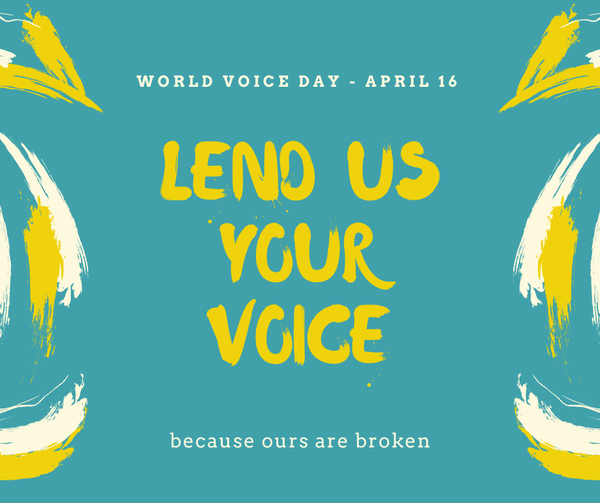
At no time in recent history has the power to communicate by voice, been more important. With International and National borders closed to travel, our ability to remain connected has relied even more heavily on long distant communication like video or telephone calls.
But let’s stop for a moment to think - how would this be possible without the magic of the human voice? This is the challenge faced every day by people living with chronic Dysphonia. Simply put – the term ‘dysphonia’ means ‘difficulty making voice sounds’ .
It can be associated with other health conditions such as Multiple Sclerosis, Parkinsons Disease, Myasthenia Gravis just to name a few… or it can stand alone. It can be a short, one-off episode, or like for many members of the Australian Dysphonia Network, it can be a chronic and life changing condition that impacts on employment, relationships and in many cases, the mental health of those affected.
Most of us don’t give our voice a thought until it’s gone, so The Australian Dysphonia Network aims to change that by raising awareness, and funds for research into early diagnosis and management of voice issues. They want voice disorders to be recognised and valued alongside vision and hearing issues.
World Voice Day, April 16th is the perfect day to do just that and in this podcast, chairperson of Australian Dysphonia Network, Louise Bale speaks to Vision Australia Radio presenter Peter Greco about World Voice Day and her personal experience of living with a voice impairment.
World Voice Day was founded in Brazil back in 1999 with the aim of drawing attention to the science and phenomenon of voice production. It soon grew to highlight the significant role that the voice plays in every aspect of our daily lives. World Voice Day has gained momentum across the globe, and currently over 50 countries join the annual celebration with events, lectures, performances and media strategies to promote its message.
The Australian Dysphonia Network will also use this time to remind everyone that any voice change
that lasts longer that 4 weeks in the absence of a ‘cold’, should be fully assessed by a Laryngologist
or Speech Pathologist whose expertise is in Voice issues.
Visit www.australiandysphonianetwork.orgfor more info.
